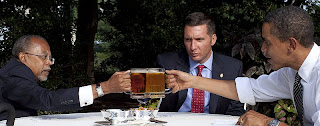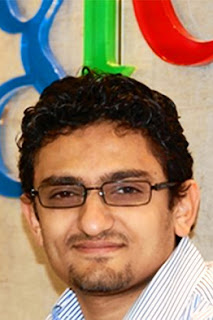Not actually. I'm going to try and de-magicify some part of the operation of the Internet, but the topic spans several college semesters, so I'm not going to get to everything in this particular post.
When you plug your computer into an ethernet cable or connect to a wireless network, it sends and receives several messages that announce its presence on the network and allow it to learn the location of certain key machines on the network. These messages are obviously sent as electrical signals, but I'm not going to delve into the alchemy of electrical engineering. Once a computer is connected to a network, it can see all of the traffic that is flowing on that network. This is why you should be wary of sending sensitive information over public WiFi networks. Chances are that your bank encrypts its communication, but many other websites do not. You're connected to the network, and you can send and receive messages on that network (this network, by the way, may span one wireless access point or a whole institution). Now what?
Connecting to your local network is useful in some cases, but Google, Facebook, Yahoo, and Pandora aren't on your local network. This is where the Internet or "Inter-network" comes in. In order to communicate between insular networks (all of which may be speaking a different language), a new standard is needed--the Internet Protocol. You've heard of an IP address. Well, this is where the name comes from. Whenever you join a network, you are assigned an IP address that uniquely identifies your computer in the entire world of computers on the Internet. All the other computers on the Internet have their own unique IP addresses which act like mailing addresses.
The Internet is a "packet switched" network. This means that data flies around in quantized amounts. Contrast this with a telephone network where the signal flows back and forth continuously. The quanta of data are called packets, and they carry all of the traffic on the Internet e.g. email, web pages, streaming music, and downloads.
 |
| Circuit switched telephone network |
When you type in a Google search, your computer sends and receives a minimum of around 20 packets. Each of these packets carries with it the IP address of both the sender and the recipient. This information allows all of the intermediate computers on the information's path to forward the packets appropriately. These intermediate computers, which you've heard called routers, maintain an address book that tells them where to send each packet based on its destination.
All of this communication via sending and receiving packets over the Internet allows your computer to access content stored on remote computers--servers. That's the real purpose of the Internet, anyway.
When you pull up a browser you, like me, probably don't consider the incredible complexity hiding behind the YouTube video you're watching or the New York Times article you're reading. I tried my best to rescue your browsing from the realm of magic and reclaim it for the world of technology. I don't know if I've demystified things or muddled them. Thankfully you can blissfully disregard everything I've just said and continue your merry surfing.


























